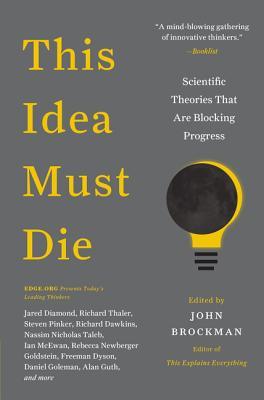Martin Rees: We'll Never Hit Barriers To Scientific Understanding
We humans haven't changed much since our remote ancestors roamed the African savannah. Our brains evolved to cope with the human-scale environment. So it is surely remarkable that we can make sense of phenomena that confound everyday intuition: in particular, the minuscule atoms we're made of, and the vast cosmos that surrounds us.
Nonetheless—and here I'm sticking my neck out—maybe some aspects of reality are intrinsically beyond us, in that their comprehension would require some post-human intellect—just as Euclidean geometry is beyond non-human primates.
Some may contest this by pointing out that there is no limit to what is computable. But being computable isn't the same as being conceptually graspable. To give a trivial example, anyone who has learnt Cartesian geometry can readily visualize a simple pattern—a line or a circle—when they're given the equation for it. But nobody given the (simple seeming) algorithm for drawing the Mandelbrot Set could visualise its amazing intricacies– even though drawing the pattern is only a modest task for a computer.
It would be unduly anthropocentric to believe that all of science—and a proper concept of all aspects of reality—is within human mental powers to grasp. Whether the really long-range future lies with organic post-humans or with intelligent machines is a matter for debate—but either way, there will be insights into reality left for them to discover.
Notes:
Folksonomies: understanding transhumanism
Taxonomies:
/science/mathematics/arithmetic (0.530421)
/science/mathematics/geometry (0.498799)
/technology and computing/computer certification (0.481034)
Keywords:
simple pattern—a line (0.976044 (positive:0.204231)), human mental powers (0.962864 (neutral:0.000000)), minuscule atoms (0.826245 (neutral:0.000000)), human-scale environment (0.817073 (negative:-0.729421)), Martin Rees (0.806325 (positive:0.314790)), non-human primates (0.792643 (neutral:0.000000)), post-human intellect—just (0.789169 (neutral:0.000000)), African savannah (0.786871 (neutral:0.000000)), Scientific Understanding (0.781832 (neutral:0.000000)), remote ancestors (0.780766 (neutral:0.000000)), vast cosmos (0.774133 (positive:0.560110)), everyday intuition (0.771885 (positive:0.588205)), Euclidean geometry (0.756426 (neutral:0.000000)), trivial example (0.749186 (negative:-0.547995)), long-range future (0.741525 (positive:0.449447)), Mandelbrot Set (0.735975 (positive:0.603964)), Cartesian geometry (0.735483 (positive:0.204231)), modest task (0.728851 (neutral:0.000000)), amazing intricacies– (0.719131 (positive:0.603964)), organic post-humans (0.716235 (positive:0.449447)), intelligent machines (0.714488 (positive:0.449447)), proper concept (0.709427 (neutral:0.000000)), reality (0.532906 (neutral:0.000000)), aspects (0.511381 (neutral:0.000000)), brains (0.482334 (negative:-0.729421)), comprehension (0.479732 (neutral:0.000000)), Barriers (0.478949 (neutral:0.000000)), limit (0.470936 (negative:-0.317765)), phenomena (0.465873 (positive:0.588205)), equation (0.465660 (positive:0.204231))
Entities:
Martin Rees:Person (0.766066 (positive:0.314790)), African savannah:Region (0.685493 (neutral:0.000000))
Concepts:
Euclidean geometry (0.975324): dbpedia | freebase
Analytic geometry (0.920867): dbpedia | freebase
Human (0.876366): dbpedia | freebase | opencyc
Geometry (0.744879): dbpedia | freebase | opencyc
Cartesian coordinate system (0.706007): dbpedia | freebase | opencyc | yago
Primate (0.694428): dbpedia | freebase | opencyc
Line (0.650794): dbpedia | freebase
Euclidean space (0.633593): dbpedia | freebase | yago





